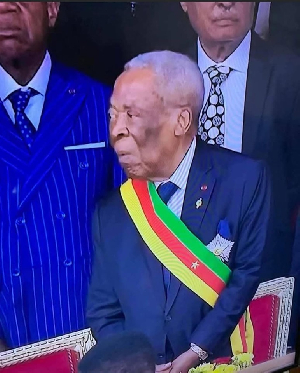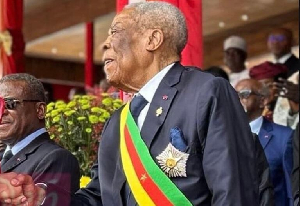
Cameroon's Leadership: A Study in Longevity

Cameroon, a Central African nation, has been under the leadership of President Paul Biya since 1982. This remarkable tenure has sparked debate and raised questions about the country's political landscape. Biya, now 93, is seeking re-election this year, further extending his record as one of Africa's longest-serving leaders.
At the heart of Cameroon's leadership is a trio of long-serving officials:
1. President Paul Biya: Biya has been at the helm of Cameroon since 1982, making him one of the longest-serving leaders in African history. His tenure has been marked by periods of stability and economic growth but also criticism for authoritarian tendencies and human rights abuses.
2. Senate President Marcel Niat Njifenji: Njifenji, 90, has served as Senate President since 2013. His recent re-election underscores his enduring influence within Cameroon's political circles.
3. National Assembly President Cavayè Yengui Djibril: Djibril, 85, has presided over the National Assembly since 1992. His re-election in 2024 cements his position as one of Africa's longest-serving parliamentary leaders.
The implications of Cameroon's long-serving leaders are multifaceted:
- Stability and Continuity: Supporters argue that the longevity of Cameroon's leaders has provided stability and continuity, allowing the country to navigate complex regional and global politics.
- Limitations on Democracy: Critics contend that the concentration of power in the hands of a few individuals undermines democratic principles and limits opportunities for younger generations.
- Human Rights Concerns: Biya's government has faced criticism for human rights abuses, including restrictions on freedom of speech and assembly.